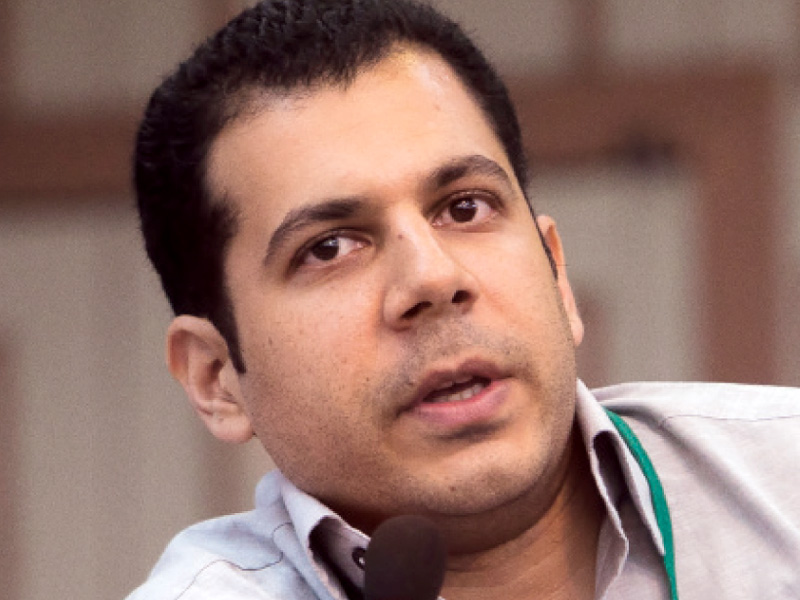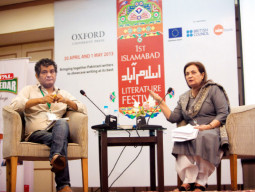
ISLAMABAD:
In a land where paradoxes are more fertile than people, a new generation of Pakistani English authors must endure a tough literary trial to capture, in essence if not in whole, the nuances of a complex landscape and identity.
During a scatterbrain Islamabad Literature Festival session about the role of Pakistani English authors in moulding the sensitivity of Western readers, moderator Muneeza Shamsie picked at the brains of journalist and writer Ahmed Rashid, analyst-author Shehryar Fazli and the delicate poet Ilona Yusuf.
The conversation wrapped around the “experimental” nature of weaving Pakistani narrative into the English language, which lacks, in large part, the grittiness and profoundness of local dialects. The English spoken in Pakistan has a distinct flavour, a muddled immediacy that lends itself to a more vivid expression.
“Pakistan has shifted from being the other to the unknown,” Fazli quipped.

Authors have an unintentional and perhaps indelible role in shaping the Western perception of Pakistan — to the unacquainted West, Pakistan is a hub for terrorism and all things dark.
“The hostile references to Pakistan in western movies has grown more aggressive over the years,” shared Yusuf, whose experience in the more conservative American South reinforced the perception of westerners with little exposure to the good and the normal in Pakistan.
“Someone once asked me if I see a lot of women without noses in Pakistan!” Yusuf laughed.
Rashid, however, feels that this perception extends to Pakistanis’ perceptions of other Pakistanis, where right-wing individuals, mullahs and other elements would prefer a “monolithic image of national ideology”.
Rashid believes that Pakistani novelists are trying to dispel this singular narrative and embracing their experiences within a Pakistan in all its pluralist, diverse, distressing and beautiful glory.
“Pakistanis today have an enormous amount of experience which simultaneously degrades and inspires them,” said Rashid. Depravity, be it in the form of an energy crisis or a greater injustice, yet has woven the political within the fabric of our existence.
“As a novelist, one draws from the centre and write about what is closest to it,” expressed Yusuf.
Yusuf, who has written political poetry in reaction to the circular discussions of television talk shows that tend to convey an elusive truth, believes that the Pakistani narrative is largely about identity and the angst of constant upheaval.
Fazli dubbed the unfairly given duty for writers to portray a “soft image” of Pakistan as the “death of a writer”.
“While we do write about art and culture and all things good, we also write about what we see, and when the government delivers on its promises, we will write about that as well.”
Published in The Express Tribune, May 2nd, 2013.
COMMENTS (5)
Comments are moderated and generally will be posted if they are on-topic and not abusive.
For more information, please see our Comments FAQ






















































Funny how 'the West' can be brush-stroked into simple stereotypes but Pakistan can't
@abdussamad: That's my understanding as well.
What do they mean by women without noses? Is it a reference to a burqa that covers the face?
West also has it's own peculiarities. The edge they have is that their media is more powerful and also more without conscience. Makes them show only one side of the story.
It's the same west that sided with Zia ul Haque.